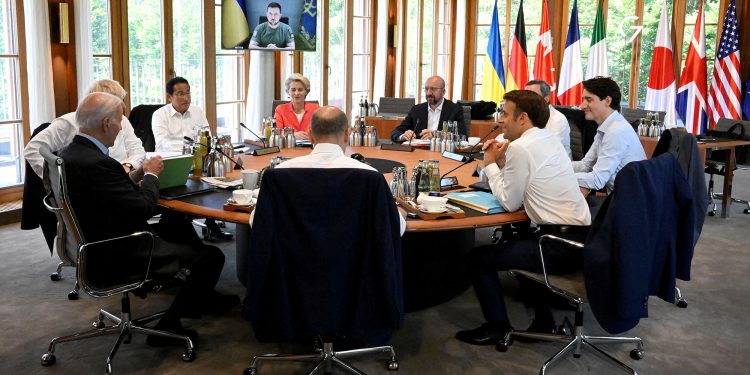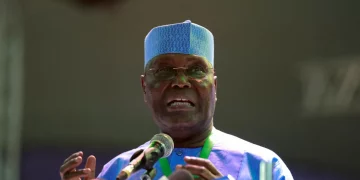G7 industrialised powers on Friday said they would “urgently” move towards the implementation of a price cap on Russian oil imports, in order to stop Moscow from raking in huge profits from soaring energy prices.
BASIC FACTS
- The G-7 nations on Friday sought to implement measures that would make oil import from Russia unattractive.
- The G-7 measure is make it difficult for Russia to finance it war of aggression against Ukraine.
- Members of the G7 some of which are EU countries have suffered counter measures from Russia by way of gas chokehold.
WHAT WE KNOW
G7 industrialised powers on Friday said they would “urgently” move towards the implementation of a price cap on Russian oil imports, in order to stop Moscow from raking in huge profits from soaring energy prices.
Finance ministers from the Group of Seven advanced nations said in a statement they would “urgently work on the finalisation and implementation” of the measure, without specifying the cap level.
The finance ministers regretted that Russia is benefiting economically from the soaring global oil price.
Hence, the G-7 seeks to limit Russia’s revenue, while reducing the economic damage to the society. The ministers added that a range of technical inputs will be considered in setting the caps.
The push to get as many countries as possible to agree to the cap is expected to be a key topic for discussion by leaders at the G20 summit in Bali on November 15 and 16.
NOTABLE QUOTES
German Finance Minister, Christian Lindner, who spoke at a press conference, said, “Russia is benefitting economically from the uncertainty on energy markets caused by the war and is making big profits from the export of oil and we want to counter that decisively,”
“G7 countries wanted to “limit Russia’s revenues and reduce the economic damage for our societies,”
“The aim of the price cap on oil exports is to “stop an important source of financing for the war of aggression and contain the rise in global energy prices,”
“The G7 sought to form a “broad coalition” of support for the oil price cap to “maximise” the effectiveness of the measure”.
“The initial price cap would be set “at a level based on a range of technical inputs”
COMMENTARY
Clariform recall that the G7 leaders had agreed late June to work towards implementing the ceiling on crude sales, to exhaust Moscow’s war chest and bring down global energy prices.
A G7 official in July explained that the maximum price would remain above the cost of the production, so it would not make economic sense for Moscow to deny oil to importing countries.
This developments has become necessary as the allies of Ukraine devises ways to counter Russia in it invasion of its smaller neighbor in February 2022, though the war has been on for over 8 years, since the first invasion of Crimea in 2014 by Russia.
The second phase of the invasion of Ukraine by Russia was thought to have been completed in a matter of days, but has now spiraled into months, and perhaps may get into a year or even beyond that mark.
Beyond the main actors of the war, the world economy even in faraway Africa have been negatively affected in ways the ordinary Africans wouldn’t have imagined when it all started last February.
Nothing proves the reality of globalisation more than the consequences of this singular Russian-Ukraine war as its impact on people’s life and nations of the world, even those in remote villages of the world.












